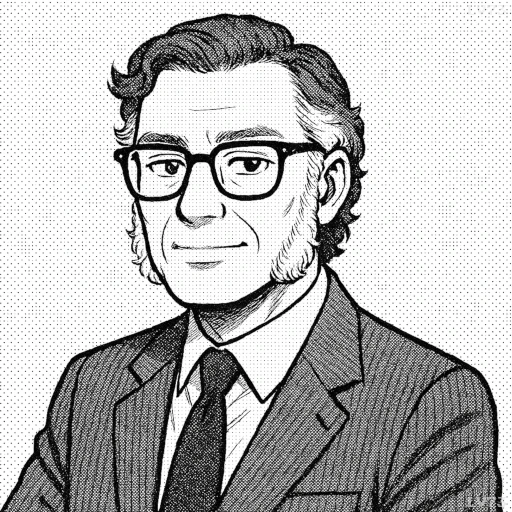“There is a cult of ignorance in the United States, and there has always been. The strain of anti-intellectualism has been a constant thread winding its way through our political and cultural life, nurtured by the false notion that democracy means that my ignorance is just as good as your knowledge.”

- January 2, 1920 – April 6, 1992
- Born in Russia
- Author, biochemist (professor)
table of contents
Quote
“There is a cult of ignorance in the United States, and there has always been. The strain of anti-intellectualism has been a constant thread winding its way through our political and cultural life, nurtured by the false notion that democracy means that my ignorance is just as good as your knowledge.”
Explanation
In this quote, Asimov critically addresses the anti-intellectualism that he saw as deeply embedded within American society. He argues that there exists a cult of ignorance, where ignorance is often seen as equivalent to knowledge, particularly in democratic settings. The “false notion” that democracy means every opinion, regardless of its factual basis or depth, holds equal weight undermines the pursuit of expertise and intellectual progress. Asimov, a staunch advocate for science and reason, felt that such an attitude was harmful because it allowed uninformed opinions to thrive, sidelining evidence-based thinking and the insights provided by experts in various fields. He was deeply concerned about the consequences of disregarding knowledge in favor of populism or the pursuit of convenience over truth.
Asimov’s commentary was shaped by the historical and political context in which he lived. Born in 1920, he witnessed the rise of both science and technology and a growing divide between those who embraced intellectual progress and those who resisted it. The anti-intellectual current he refers to has often been seen in moments of political or cultural upheaval, where emotion and simplified rhetoric have been preferred over reasoned debate. From McCarthyism to anti-science sentiments, Asimov’s critique remains relevant in times when political polarization makes it difficult to reach consensus, especially in areas that require expertise, such as climate change or public health.
In today’s world, Asimov’s warning is particularly prescient as we navigate a digital age where misinformation can spread rapidly, and populist rhetoric often undermines expert knowledge. The rise of social media has made it easier for individuals to amplify their opinions without understanding the complexities of the subjects they discuss, often equating their personal beliefs with scientific consensus. Asimov’s point encourages a return to the value of critical thinking, education, and intellectual humility, urging society to elevate the voices of experts and fact-based knowledge over the impulse to equate all opinions equally. His call for a more informed democracy challenges us to recognize the importance of knowledge in shaping a healthier, more rational society.
Would you like to share your impressions or related stories about this quote in the comments section?



